Administrative Fellowship

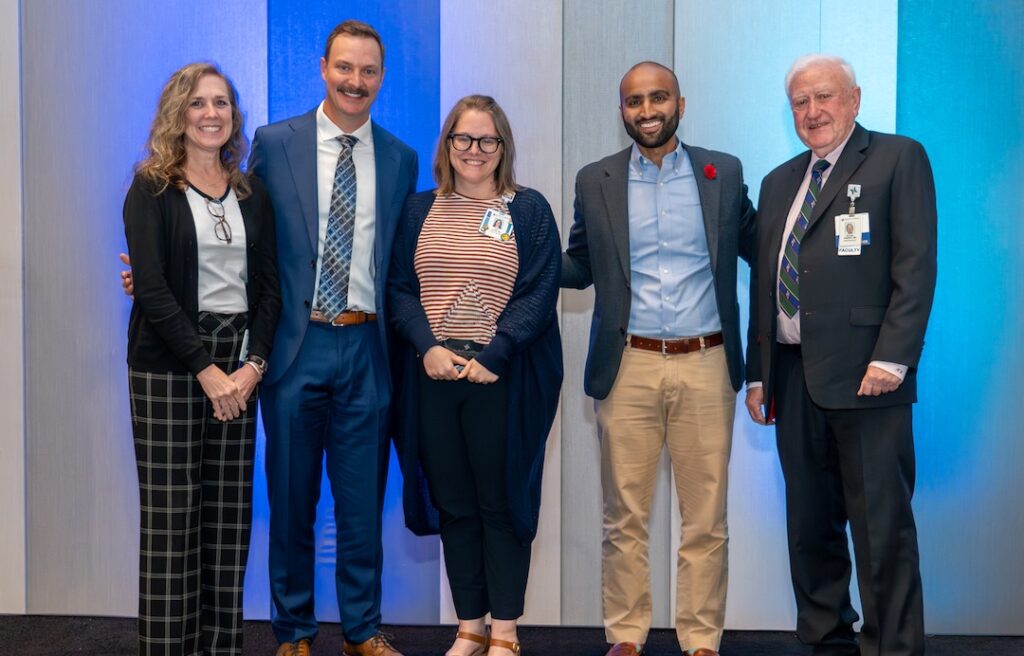

Program Overview
Baylor University Medical Center Administrative Fellowship
Recognizing our ability to train and mentor young physicians in leadership skills, Baylor University Medical Center started an Administrative Fellowship in 2011. This two-year immersive program – designed for the young physician eager to become involved in leadership – provides training in quality programs, customer service, financial skills, and people management with an optional concurrent enrollment in a master’s program (MBA, MMM, MHA, MPH).
Administrative leadership of hospitals and emergency departments is a critical area of expertise and requires an understanding of the dynamic complexities in healthcare. This program facilitates the fellow’s education, experience, and knowledge of the complexities within the health care system. In addition, providing the tools and resources to be actively involved yet still under the mentorship of Physician leaders will reduce the learning curve for developing a successful Physician leader.
Administrative Fellowship Program
The following Elective Tracks outline potential frameworks for growth. Many roles require application and feature a selection process for a limited number of available positions, and as such, cannot be guaranteed. Not all activities apply to each candidate, and opportunities that arise outside of those listed will also be utilized.
Elective Tracks:
Healthcare Legislation and Policy Advocacy
Lead Mentor: Dr. Heidi Knowles, MD, FACEP, ACEP Secretary-Treasurer, ACEP Representative to Federation of State Medical Boards, Chief of Operations at John Peter Smith Hospital, Past President of TCEP.
Overview:
The Healthcare Legislation and Policy Advocacy track equips physicians with insight into the legislative process, policy development, and effective advocacy strategies. Participants will learn to engage with government bodies, professional societies, and community stakeholders to drive healthcare reform and shape policies that impact emergency medicine and beyond.
Activities & Opportunities:
- ACEP Leadership & Advocacy Conference
- Attend sessions on legislative updates, meet with legislators, and learn effective advocacy techniques.
- State Chapter Advocacy Conferences / TCEP Connect
- Join your state specialty chapter in their annual advocacy conference and capitol advocacy day to advocate for the preservation of quality care for patients.
- State Medical Association Legislative Hotline Participation
- Receive real-time updates on Texas legislative developments and contribute to policy discussions.
- State Medical Association House of Delegates Membership
- Participate as a member of the policy-making arm of the state medical association. This may also involve serving on specific reference committees.
- County Medical Society Membership and Engagement
- Participate real-time in local advocacy to address issues on the front lines.
- AAEM Government & National Affairs Committee
- Join committee meetings focused on national issues, draft position statements, and develop advocacy skills.
- EDBA Policy & Advocacy Webinars
- Participate in webinars on emergency department administration policy changes and compliance.
- Capitol Hill Day/”First Tuesday” Visits
- Work directly with legislators and staff members in Washington, D.C. and/or at the state capital to voice EM concerns.
- Local/Regional EM Policy Task Force
- Collaborate on initiatives that influence regulations, reimbursement, and hospital policies.
- Grassroots Advocacy Training
- Complete short training programs on effective local community and legislative advocacy.
- ACEP State Chapter Leadership and Advocacy Fellowship
- Combines elements of mentoring, organizational education, and advocacy skills training in addition to guided experiences.
Education
Lead Mentor: Dr. Liz Fagan, Director of Education and EMS, Integrative Emergency Services
Overview:
The Education track prepares physician leaders to design, implement, and evaluate educational programs across large, multi-specialty healthcare organizations. Fellows will gain instructional design knowledge, strengthen teaching skills, and learn how to mentor rising clinicians and educators.
Activities & Opportunities:
- ACEP Teaching Fellowship – ACEP Accelerate – January 2026
- Intensive workshops on medical education principles, curriculum development, and evaluation.
- IES Quality Summit Development and Implementation
- Hands-on experience with the planning, development, and execution of a large, multi-state educational conference.
- IES Critical Procedures Course Instruction and Development
- Hands-on experience with ongoing planning, development, and execution of point-of-need educational activities.
- Educational Compliance Fulfillment
- Hands-on activity on the design and development of educational activities required for compliance with state and federal requirements.
- AAEM Scientific Assembly
- Present educational innovations, attend workshops on teaching methods, and network with academic leaders.
- Clerkship Director in Emergency Medicine (CDEM) Involvement
- Engage with national committees shaping undergraduate EM education; develop teaching materials or research projects.
- Faculty Development Seminars (TMA)
- Participate in TMA events designed to elevate teaching competencies and leadership in academic settings.
- Simulation-Based Education Training
- Certification opportunities in sim center operations and immersive teaching techniques.
- Regional Emergency Medicine Educator Consortium
- Local gatherings focusing on curriculum design, assessment, and innovative instructional strategies.
- Online Learning Platforms (e.g., ALiEM, EM:RAP)
- Contribute content or evaluate modules for leading digital EM education resources.
Scholarly Activity and Knowledge Translation
Lead Mentor: Dr. Jim d’Etienne, director of the IES Research Institute
Overview:
This track focuses on developing high-impact research, fostering collaborative scholarly initiatives, and translating evidence into practice. Fellows will learn how to identify research gaps, conduct studies, publish findings, and implement results in clinical and administrative settings.
Activities & Opportunities:
- ACEP Research Forum
- Submit abstracts, present posters, and attend sessions on EM research best practices.
- AAEM Clinical Practice Committee
- Contribute to guidelines or consensus papers that drive evidence-based emergency medicine.
- ACEP Research Academy (formerly EMBRS) Course
- Hands-on experience and mentorship from some of the biggest names in emergency medicine research.
- EDBA Best Practices Repository
- Review and contribute to administrative and clinical best-practice reports for ED operations.
- Manuscript Peer Review Training
- Join a peer-review program (e.g., through Annals of Emergency Medicine) to hone critical appraisal skills.
- Multicenter Research Networks
- Collaborate on national or regional EM research consortia to develop and share data.
- Quality Improvement (QI) Project Publication
- Transform local QI initiatives into scholarly presentations or manuscripts.
- Journal Editorial Roles
- Serve as an editorial board member or content reviewer for EM journals or newsletters.
- IES Quality Summit Critical Appraisal of Research
- Serve as a clinician evaluator and judge at the yearly research symposium.
Inpatient, Observation, and Hospitalist Medicine
Lead Mentor: Multiple
Overview:
The Inpatient, Observation, and Hospitalist Medicine track helps emergency physicians expand their leadership and clinical expertise across the care continuum. Fellows will learn strategies for efficient handoffs, care transitions, and protocols that optimize inpatient and observation unit operations.
Activities & Opportunities:
- ACEP Observation Medicine Section
- Attend specialized sessions on observation unit operations, clinical protocols, and best practices.
- Society of Hospital Medicine (SHM) Conferences
- Gain insights on hospitalist workflow optimization, patient safety, and care coordination.
- Combined ED-Hospitalist Protocol Development
- Work on collaborative projects that streamline admission criteria, reduce ED boarding, and shorten LOS.
- Multi-hospital system initiative development and implementation
- Work with executive leadership to develop and operationalize initiatives across hospitalist and other service lines at multiple facilities.
- EDBA Observation Unit Management Webinars
- Learn administrative fundamentals of observation services, including coding, billing, and performance metrics.
- TMA Inpatient Care & Transitions Workgroup
- Participate in discussions on inpatient policy changes, transitional care models, and practice guidelines.
- Joint ED-Inpatient Process and Quality Improvement
- Lead or observe interdisciplinary process and quality improvement initiatives to improve care continuity and communication.
- Hospital Leadership Roles
- Seek appointment to committees overseeing throughput, capacity management, and inpatient policy.
- SHM Conference Attendance
- Participate in the annual Society of Hospitalist Medicine conference at either the Converge or Leadership Academy in order to immerse yourself in quality and cutting-edge processes.
Healthcare Quality
Lead Mentor: Dr. Bob Risch, Chief Quality Officer, Integrative Emergency Services
Overview:
This track is designed for physician leaders committed to continuous improvement in patient care, safety, and system efficiency. Fellows will develop skills in quality measurement, risk management, and the application of performance improvement frameworks in the ED and beyond.
Activities & Opportunities:
- ACEP Quality & Patient Safety Section
- Collaborate on quality improvement (QI) and patient safety initiatives, gain mentorship from national leaders.
- Institute for Healthcare Improvement (IHI) Courses
- Complete virtual or in-person trainings on QI methodologies (PDSA cycles, Lean, Six Sigma).
- System Quality and Performance Evaluation and Management
- Work with system leaders to develop quality measures, performance metrics in line with requirements set out by healthcare system partners, government, and regulatory agencies.
- AAEM Quality & Patient Safety Committee
- Contribute to white papers, position statements, or policy proposals on EM quality standards.
- EDBA In-Training Board Member
- Contribute to projects, initiatives and decisions that shape the future of emergency department benchmarking.
- Root Cause Analysis (RCA) Workshops
- Develop expertise in systematic incident investigation to reduce medical errors.
- TMA Quality Programs
- Engage in statewide collaborative efforts aimed at improving patient outcomes across different health systems.
- Hospital Quality Committee Leadership
- Take on or shadow roles that set quality goals, evaluate outcomes, and implement improvement projects.
Healthcare Informatics and Data
Lead Mentor: Amy Ho, MD, MPH, Chief Systems and Informatics Officer
Overview:
Fellows in this track delve into the intersection of data science, technology, and healthcare delivery. Participants will learn how to optimize EHRs, leverage clinical data for decision-making, and innovate with digital health solutions that enhance patient care and operational efficiency.
Activities & Opportunities:
- ACEP Health IT Committee
- Influence national EHR standards, data security policies, and EM-specific technology solutions.
- AAEM Informatics Section
- Explore data-driven approaches to emergency care, including predictive analytics and telehealth.
- Integrate and Operationalize Data Platforms
- Hands-on experience utilizing and leveraging a variety of data platforms (Epic, Vizient, Tableau, Power BI, Health Catalyst) to aid in decision-making and drive quality.
- HIMSS Conference (Healthcare Information and Management Systems Society)
- Network with healthcare technology leaders; attend sessions on emerging informatics trends.
- EDBA Data Analytics Projects
- Work with ED business intelligence tools to measure operational metrics (throughput, LWBS, etc.).
- Clinical Decision Support (CDS) Design
- Collaborate with IT teams to build or refine CDS modules that improve diagnostic accuracy.
- Data Governance Committees (TMA)
- Engage in setting best practices for data collection, privacy, and interoperability at the state level.
- EDBA In-Training Board Member
- Contribute to projects, initiatives and decisions that shape the future of emergency department benchmarking.
Executive Leadership
Lead Mentor: Dr. Chet Schrader, Chief of Clinical Operations, President of IES Physician Group
Overview:
This track prepares rising physician leaders to gain a deeper understanding of the complexities of executive leadership in complex organizations. The fellow will spend additional time learning strategic planning, financial oversight, and organizational culture. Participants will refine their leadership style, learn principles of healthcare management, and expand their professional network.
Activities & Opportunities:
- Business of Medicine Training
- Gain additional training from healthcare business leaders within the organization, to broaden the understanding of the non-clinical side of healthcare from a strategy and finance standpoint.
- AAEM Leadership Academy
- Develop advanced leadership skills and strategic planning capabilities as you work with a group of physician leaders to advance the field of emergency medicine.
- EDBA Executive Summits/Board Involvement
- Attend administrative-focused gatherings to discuss national ED trends and executive challenges.
- TMA Leadership College
- Network with multidisciplinary physician leaders and receive formal leadership training via TMA’s program, open to applications for those in the first eight years of post-training practice.
- Physician Leadership Roles
- Additional experience and mentoring from organizational leaders in complex roles such as Chief Medical Officer, Market President, and Chief of Staff.
- MBA Coursework
- Enroll in an affiliated executive program that strengthens business acumen in healthcare settings. Current program partnerships include TCU and The University of Texas at Dallas.
- Mentorship & Succession Planning
- Work with executive leaders to develop mentorship structures within your organization to ensure continuity and cultivate future leaders.
- ACEP’s Reimbursement and Coding Conference – ACEP Accelerate – January 2026
- Maximize your understanding of reimbursement and finance through real-world strategies taught by experts.
Fellowship Structure Includes:
Credentialing
Contract Negotiations
Billing & Coding
Budgetary Responsibilities
Accreditation Requirements & Management of Criteria Adherence
Conflict Resolution
Quality & Operational Processes
Risk Management
Several Other Areas for Elective Development
Conferences/Training:
ACEP Leadership & Advocacy Conference
ACEP Emergency Department Director’s Academy
Leadership and Faculty

Robert Dahlquist, MD, MBA
Administrative Fellowship Director
Chief of Staff, BUMC
Medical School
University of Nebraska Medical Center
Residency
Carolinas Medical Center
Fellowship
Emergency Medicine Administration Integrative Emergency Services
Current Fellows
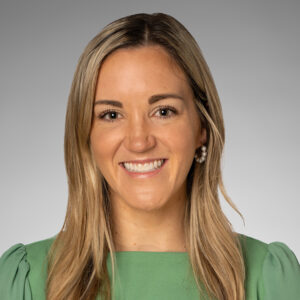
Megan Marcom, MD
Medical School
Texas A&M College of Medicine
Residency
Orlando Health: Orlando Regional Medical Center
Fellowship
Advanced Emergency Ultrasound at University of Texas Southwestern Medical Center
The BUMC Department of Emergency Medicine has a long and successful history of providing undergraduate and graduate medical education delivered and managed by Residency Trained Board Certified/Eligible Emergency Physicians.
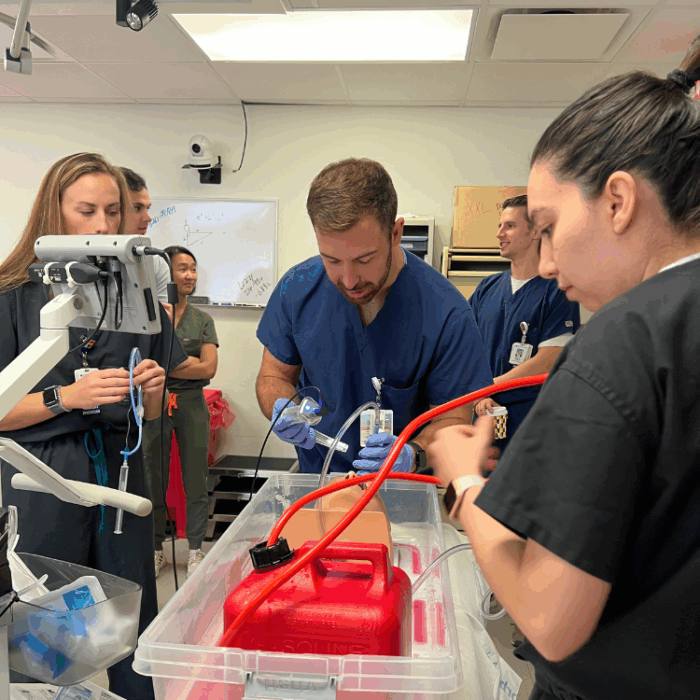
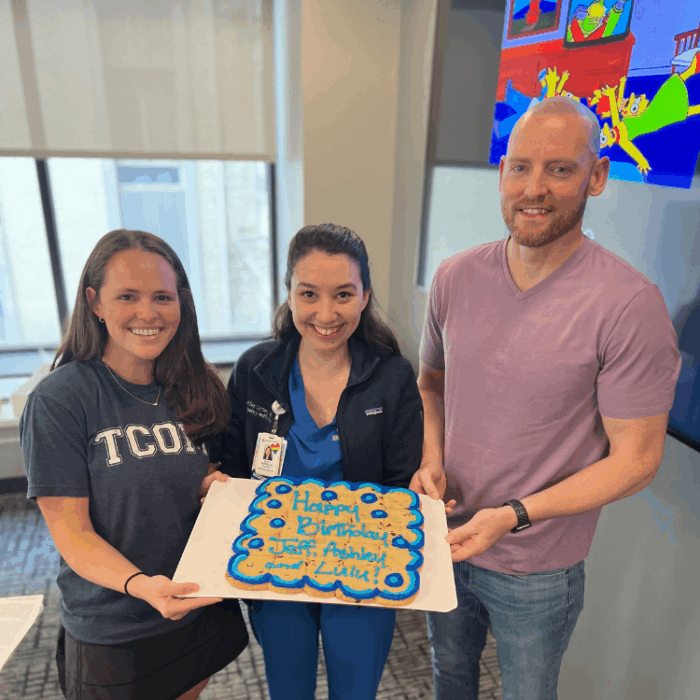
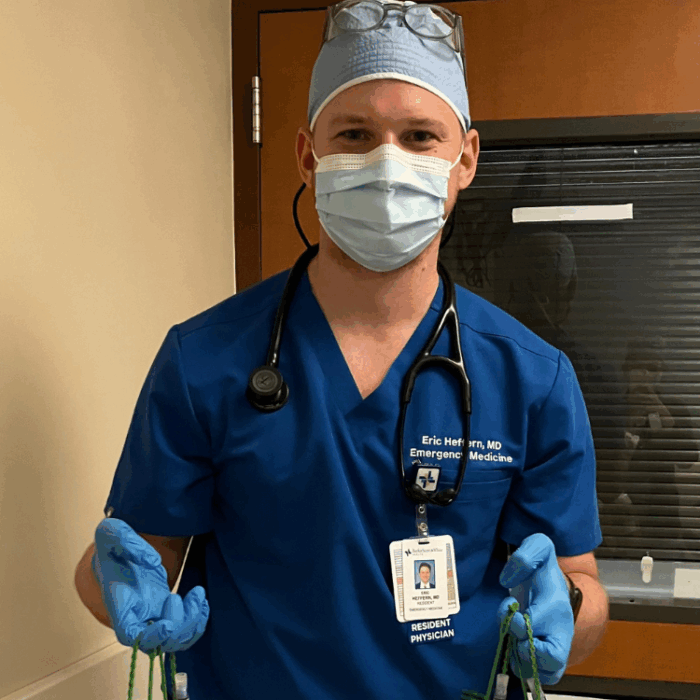
Contact Info
Fellowship Director

Robert Dahlquist, MD, MBA
Program Coordinator

Courtney Durham